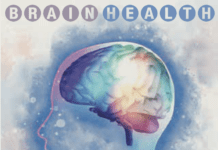IBS – Definition – Irritable bowel syndrome (IBS) is a gastrointestinal disorder characterized by several symptoms that occur together, including abdominal pain or discomfort and changes in stool consistency. Relevance – The causes of IBS are unknown, but researchers believe the symptoms of discomfort, pain, cramping and changed bowel habits are a combination of mental and physical health factors.
Indole – Definition – Indole is a type of phytochemical belonging to the isothiocyanate group that is found in broccoli. Revelance – Indole-3-carbicol may increase the number of protective enzymes in the body and alter estrogen levels, and some studies suggest that it may slow growth of certain cancers.
Inflammatory bowel disease (IBD) – Definition – An umbrella term that refers to conditions characterized by chronic inflammation of the digestive tract. The two most common types of IBD are ulcerative colitis and Crohn’s disease. Relevance – Both conditions generally require prescription medication for treatment, and in some cases, surgery to remove portions of the digestive tract damaged by prolonged inflammation.
Inflammation – Definition – Inflammation is a component of the body’s immune response that occurs when tissue cells, damaged by trauma, toxins, or any other stressor, release chemicals, such as histamine, that cause swelling and isolate the stressor to prevent contact with body tissues. Relevance – Although an immune response, inflammation can be harmful to the body in the case of chronic inflammatory diseases like rheumatoid arthritis and Crohn’s disease, where the body damages its own tissues, or obesity, which is linked to chronic low inflammation.
Insulin resistance – Definition – When muscle, fat and liver cells do not respond properly to insulin, so glucose (sugar) is not easily absorbed from the bloodstream and higher levels of insulin are needed so glucose can enter cells. Relevance – Over time, insulin resistance can lead to prediabetes and type 2 diabetes because the pancreas cannot keep up with the body’s increased need for insulin.
Intermittent fasting – Definition – A broad term for diets that cycle between periods of fasting and non-fasting. Relevance – Various forms of intermittent fasting have become popular as a weight loss method. Some clinical trials suggest certain forms of intermittent fasting may be a reasonable alternative (but not superior) to a traditional reduced-calorie diet requiring daily calorie restriction.
Iron – Definition – Iron is a mineral needed by the body as a component of hemoglobin, which transports oxygen from the lungs to the rest of the body through the blood, and also to help the muscles store and use oxygen. Relevance – Low iron levels in the body can lead to iron deficiency anemia, caused by poor diet, blood loss, or poor absorption of iron; while too much iron, often from supplements, can cause iron poisoning.
Isothiocyanates – Definition – Isothiocyanates are phytochemicals that are created during the breakdown of sulfur-containing compounds in cruciferous vegetables, like broccoli. Relevance – Isothiocyanates have been shown in some studies to decrease the risk of cancer by removing carcinogens from the body and increasing the production of tumor suppressor proteins.
























